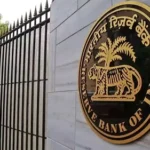In a significant financial scandal, approximately 1,425 individuals from Kerala, India, are under investigation for allegedly defrauding Kuwait’s Gulf Bank of around ₹700 crore. The accused reportedly secured substantial loans from the bank and subsequently absconded to countries such as the United Kingdom, Canada, and the United States without repaying the borrowed amounts.
Modus Operandi of the Fraud
The fraudulent activities are believed to have occurred between 2020 and 2022. Initially, the individuals took small loans, which they repaid promptly to build trust with the bank. After establishing credibility, they secured larger loans, some amounting to as much as ₹2 crore. Subsequently, they fled Kuwait, leaving the loans unpaid.

Bank’s Response and Legal Actions
Upon noticing delays in loan repayments, Gulf Bank initiated an internal investigation, uncovering the extensive fraud. Bank officials traveled to Kerala to meet with senior police officers, providing them with the addresses of the alleged fraudsters. This collaboration led to the registration of ten cases in Kerala related to the incident.
Profile of the Accused
Among the accused are over 800 individuals who previously worked as nurses with Kuwait’s Ministry of Health and other Malayalis employed in Kuwaiti government services. For instance, a resident of Kumarakom in Kottayam district allegedly defrauded the bank of over ₹1.1 crore. This individual took a loan of 33,777 Kuwaiti Dinar (approximately ₹1.1 crore) on December 9, 2021, and fled to India without repaying the amount.
Potential Organized Fraud
The pattern of the fraud suggests a possible organized effort. The bank suspects that more Malayalis exploited procedural loopholes after observing earlier cases of fraud, potentially with the involvement of agents. This indicates a coordinated scheme rather than isolated incidents.
Impact on the Malayali Community
This scandal has cast a shadow over the Malayali expatriate community in Kuwait, which has a longstanding reputation for diligence and integrity. The actions of a few have raised concerns about the community’s collective image and may lead to increased scrutiny of Malayali professionals working abroad.
Legal Proceedings and Extradition Efforts
Kerala police have initiated investigations based on the complaints filed by Gulf Bank officials. Given that many accused have relocated to countries like the UK, Canada, and the US, the process of bringing them to justice may involve complex extradition procedures. International cooperation will be crucial in ensuring that the perpetrators face legal consequences.
Conclusion
The alleged defrauding of Kuwait’s Gulf Bank by over 1,400 Malayalis underscores the need for stringent verification processes in financial institutions and highlights the challenges in monitoring expatriate financial activities. As investigations proceed, it is imperative to uphold the principles of justice while ensuring that the actions of a few do not tarnish the reputation of the broader community.



















